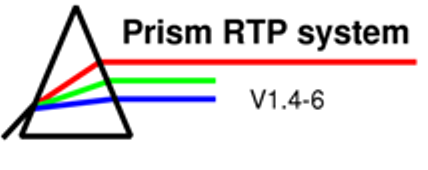
Module 3
Unit 3: Challenge

The aim of this challenge is to create a treatment plan for a clinical case.
Choose one of the following patients:
-
Prostate: Patient 15, Case 4
- Breast: Patient 21, Case 1
- Head and Neck (Larynx carcinoma): Patient 22, Case 1
- Brain
(Glioblastoma): Patient 23,
Case 1
In
all of these patients organs at risk, tumours and targets are
contoured. Your task is to carry out all other parts of the treatment
planning process, beginning with the definition of an isocentre and
points of interest, ending with the plan evaluation, documentation
and the simulation of the DICOM transfer to a “LINAC”.
The prostate patient is the one you
have already worked with. Nevertheless you can try to create your own
plan and afterwards compare it to the plans provided for Unit 1 and 2.
The difficulty of the cases increases in the following order: Brain, Prostate, Breast, Head and Neck!
Use the following prescribed doses and tolerance doses as a guideline:
| Patient |
Organ |
Absolute
dose |
Relative
dose |
|
| Prostate |
Prescribed dose | PTV1 | 7400 cGy | 100% |
| Tolerance doses | Rectum | 6500 cGy | 88% |
|
| Bladder |
6500 cGy |
88% |
||
| Femur |
3500 cGy |
47% |
||
| Breast |
Prescribed dose |
PTV1 |
4250 cGy |
100% |
| Tolerance doses |
Heart |
4000 cGy |
94% |
|
| Spinal cord |
4500 cGy |
106% |
||
| Lung |
2500 cGy |
59% |
||
| Head and Neck |
Prescribed dose |
PTV1 |
6000 cGy |
100% |
| Tolerance doses |
Parotid glands |
3000 cGy |
50% |
|
| Spinal cord |
4500 cGy |
75% |
||
| Brain |
Prescribed dose |
PTV1 |
6000 cGy |
100% |
| Tolerance doses |
Brainstem |
5400 cGy |
90% | |
| Chiasma |
5000 cGy |
83% |
||
| Optical nerves |
5400 cGy |
90% |
||
| Lenses |
500 cGy |
8% |
This overview of the individual steps in the treatment planning process might be useful:
-
Select a patient and load it.
-
Read image study associated with the patient.
-
Contouring (in this task: check contours and change Patient/Body-structure to “Use in Comp.”).
-
Add a plan.
-
Add views and isodose levels.
-
Define the isocentre, add points of interest (use different views for set-up).
-
Add beams
-
Check/Choose machine type.
-
Arrange isocentric beam placement.
-
Choose appropriate beam directions.
-
Beam shaping.
-
Add wedges, if necessary.
-
-
Dose computation. (Use a medium/coarse grid for initial calculations only.)
-
Beam weighting.
-
Plan normalization.
-
Plan evaluation.
-
DICOM transfer (Simulation)
-
Plan documentation.
Submit your plan documentation as Module3_U3_YourName.doc or ".pdf" through Learn.
| << Previous Page |
Top of the Page |
Next Page >> |